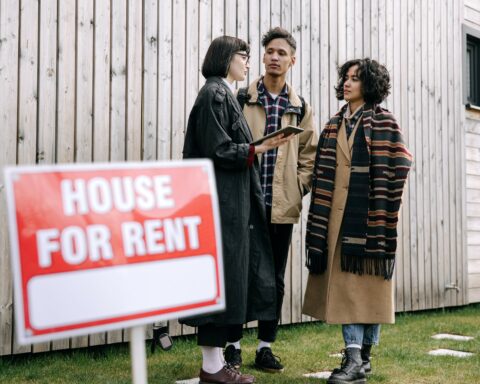One of the most important issues for Torontonians is the lack of proper housing: subsidized housing for the unhoused; affordable housing for the working poor, accessible housing for those in need and options for those who are unable to afford the current high-priced market rates.
The leading candidates in the upcoming mayoral election claim to understand this, and they are all making promises of increased housing opportunities. How they plan to get there will determine how serious and doable their promises are.
But how they plan to finance their promises might be an even bigger problem than the issue of housing itself.
Any candidate who says they would provide any amount of housing without raising taxes, by the way, is just not being realistic. And that is the first problem.
Dancing around housing issues
At a recent debate between five of the top six candidates, sponsored by the Daily Bread Food Bank among others, the candidates made every effort to try to explain how they would keep their housing promises without significantly raising taxes. It was painful to watch.
Olivia Chow, who is by far the current leader of the 102 candidates registered to run for mayor of Toronto, said that she, as mayor, would raise the needed funds from the Vacant Home Tax (VHT). When challenged by candidate Josh Matlow, a current city councillor, that the VHT, which is one per cent of a property’s assessed value, would not provide the funding needed for the 25,000 units she is promising, she quickly responded that she would increase the VHT to three per cent and she would increase the taxes on purchases of homes above $3 million.
The VHT is a new tax for the city of Toronto – starting in 2022 – that was levied on residential properties vacant for more than six months of the year. It is a one per cent fine or tax based on the assessed value of the property. A vacant property that was assessed at $600,000 (taxes for 2022 and 2023 were based on the 2016 assessments) would be fined $6,000. The annual taxes for that property, by the way, would be about $3800. So, the total cost to the taxpayer for the year for the vacant property would be close to $10,000.
Chow’s three per cent VHT proposal would increase that to about $22,000 per year per property. And, for $600,000 we are talking about a one-bedroom condo at best. Who would want to pay $22,000 a year to keep a one-bedroom condo empty?
The stated goal of the VHT was to force (and that is the word that has been used) homeowners to either sell or rent their properties to put more resale or rental stock on the market although some of the proponents of the VHT have boasted about how much money the municipalities would receive from this tax. (Somehow, a government forcing a homeowner to sell his property so that someone else could purchase it doesn’t seem very democratic. This is nothing more than a distraction. Rather than fix the problem themselves, as we elected them to do, they try to turn us against each other.)
The VHT, which was first levied in Vancouver in 2017 at one per cent, is now at five per cent. I always thought that tax was, in the case of Vancouver, punitive and possibly even racist.
The problem for Chow, as Matlow rightly pointed out, is that the VHT funds are a disappearing resource. While she might count on the potential hundreds of millions of dollars from this tax, all homeowners would have to do is sell or rent their properties and, poof, no money for housing. At the current market prices, homeowners would reap a windfall by selling, then they would invest the money in the bank with all the other millionaires whose money is beyond the reach of a Mayor Chow. At least for now.
I don’t know exactly how many multi-million-dollar homes are being sold each year in the city of Toronto, but could we count on there being enough taxes from those sales to build any decent amount of affordable housing?
Chow’s other idea about going to the other levels of government for funding is not a sure thing. That doesn’t always work out.
The problem is that the candidates don’t want to scare off homeowners with talk of raising taxes and probably lose their votes. So, they dance around the subject. But that is disingenuous. They are either going to raise taxes once elected or do nothing.
The candidate that stood out for me at that debate, by the way, was Mitzi Hunter. She articulated her vision clearly and showed that she has a well thought out plan for providing affordable housing including, to use her words, “unlocking city-owned lands”.
There is a lot of land owned by the city or accessible to the city and available for use by the city for affordable housing. The problem is NIMBYism. Most homeowners don’t want to have affordable housing built “in their backyard” and they prevail on their councillors to see that is not done.
Hunter’s problem is that she has vowed to not use the sweeping strong mayor’s powers the province gave to the cities of Toronto and Ottawa last year. That would have allowed her as mayor to overrule, for example, the objections of individual councillors to building affordable housing in certain areas with minimal support from council.
If she stands by that commitment, she will have the same problems that other proponents of affordable housing have had for decades. And nothing will get built.
Something that Chow said does ring true. There are a lot of homeowners in the city who are house rich and cash poor. That is her reason – or one of them – for not wanting to raise property taxes. Some people can’t afford it.
But let’s say that a homeowner purchased a property some 50 years or so ago when it was less than $100,000. That property is now worth close to $1 million. That is a lot of equity.
What if a homeowner, who is on a fixed income and can’t afford to pay a significant increase in taxes, is allowed to owe the increased portion of the taxes to the city until the property is sold or the beneficiaries are made to pay the taxes as they do federally and provincially before they divide up their inheritance? That would be a significant windfall for the city, it would be fair, and it would be money the city could depend on receiving.
Remember also that property taxes in the City of Toronto are the lowest in all of Ontario.
Deflecting responsibility
Apart from affordable housing which is desperately needed in this city as too many people are being denied the human right of proper housing in a city as prosperous as ours, there is also a need for improvement to the standard of living for many of our citizens. People should not have to depend on food banks to feed their families. We should all be ashamed that in this day and age in a city like ours the demand on food banks is actually rising.
The people running our city should be ashamed the most as this is happening on their watch. Instead, they try to distract us; they deflect; they try to redirect our attention. Every problem is someone else’s fault.
Some of the candidates promised to increase funding for the food banks and for other services for the poor. And that is a good thing – for now. The goal, however, should be to improve the overall standard of living so that there would be little or no need for food banks.
Listen to the candidates. Take the time to review their platforms. They all have websites. Check them out. Do they make sense to you? Do their promises seem realistic? One of them is going to be our next mayor. Who do you think is best qualified to lead this city for the next four years?
Then, go out and vote!
___________________________________________________
This commentary was originally published in Share Newspaper, which is in its 46th year of publishing.

Arnold A. Auguste
Arnold A. Auguste is the founder and publisher of Share and a senior editor. Aguste came to Canada from his native Trinidad and Tobago in 1970 and began his journalism career as a columnist with a weekly publication in Toronto in 1972. He worked as a reporter while studying journalism at Ryerson Polytechnic Institute (now Toronto Metropolitan University) and left that publication as managing editor in 1978 to start Share. Over the years, Share has grown to become one of Canada’s largest and most influential ethnic newspapers and by far the largest one serving the Black and Caribbean community in the GTA.




